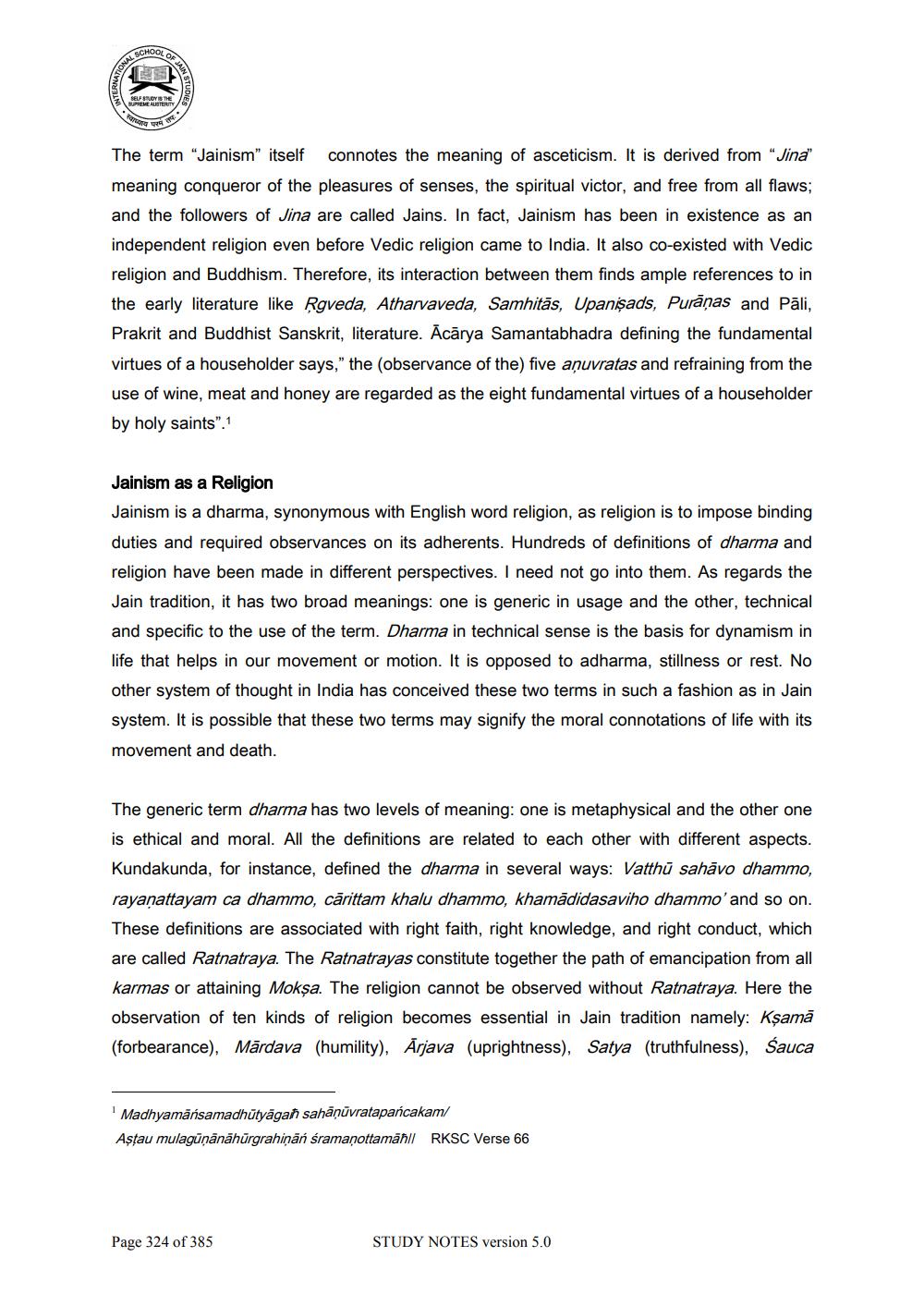________________
The term “Jainism" itself connotes the meaning of asceticism. It is derived from “Jina" meaning conqueror of the pleasures of senses, the spiritual victor, and free from all flaws; and the followers of Jina are called Jains. In fact, Jainism has been in existence as an independent religion even before Vedic religion came to India. It also co-existed with Vedic religion and Buddhism. Therefore, its interaction between them finds ample references to in the early literature like Rgveda, Atharvaveda, Samhitās, Upanişads, Purāņas and Pāli, Prakrit and Buddhist Sanskrit, literature. Ācārya Samantabhadra defining the fundamental virtues of a householder says," the (observance of the) five aņuvratas and refraining from the use of wine, meat and honey are regarded as the eight fundamental virtues of a householder by holy saints”.!
Jainism as a Religion Jainism is a dharma, synonymous with English word religion, as religion is to impose binding duties and required observances on its adherents. Hundreds of definitions of dharma and religion have been made in different perspectives. I need not go into them. As regards the Jain tradition, it has two broad meanings: one is generic in usage and the other, technical and specific to the use of the term. Dharma in technical sense is the basis for dynamism in life that helps in our movement or motion. It is opposed to adharma, stillness or rest. No other system of thought in India has conceived these two terms in such a fashion as in Jain system. It is possible that these two terms may signify the moral connotations of life with its movement and death.
The generic term dharma has two levels of meaning: one is metaphysical and the other one is ethical and moral. All the definitions are related to each other with different aspects. Kundakunda, for instance, defined the dharma in several ways: Vatthū sahāvo dhammo, rayanattayam ca dhammo, cārittam khalu dhammo, khamādidasavino dhammo' and so on. These definitions are associated with right faith, right knowledge, and right conduct, which are called Ratnatraya. The Ratnatrayas constitute together the path of emancipation from all karmas or attaining Mokşa. The religion cannot be observed without Ratnatraya. Here the observation of ten kinds of religion becomes essential in Jain tradition namely: Kşamā (forbearance), Mārdava (humility), Ārjava (uprightness), Satya (truthfulness), sauca
Madhyamansamadhütyāgan sahānūvratapancakam/ Aştau mulagünanähürgrahinań śramanottamahll RKSC Verse 66
Page 324 of 385
STUDY NOTES version 5.0




